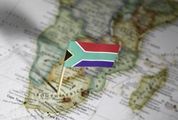NARCISSISTIC personality disorder (NPD) is a form of pathological narcissism that was first diagnosed by Austrian-born US psychoanalyst Heinz Kohut in 1968. It's a rigid pattern of behaviour that drives a lifelong quest for self-gratification, and is characterised by a grandiose sense of self-importance, an insatiable need for attention and a chronic lack of empathy.
Experts believe that disproportionate numbers of pathological narcissists are at work in the most influential reaches of society.
As Sam Vaknin, author of Malignant Self-Love, a bestselling study of narcissism, says: "Narcissists gravitate towards professions where they can control people and elicit adulation.
They are more likely to work in politics, finance or medicine than in shoe-making.
The disorder, formerly known as megalomania, affects 1% of the population and up to 16% of the clinical population. In psychiatric terms, it is classified as a cluster B (or dramatic) disorder, alongside antisocial and histrionic disorders. (Cluster As, or odd disorders, include paranoid and schizoid disorders; cluster Cs, or anxious disorders, include dependent and obsessive-compulsive disorders.)
The disorder is not easily discernible to the untrained eye, partly because a degree of self-love is essentially healthy: it protects us from self-harm; it enables us to form support networks, to find a mate and procreate.
NPD, however, is not simply a healthy self-regard gone astray.
Dr Jose Romero-Urcelay is a UK forensic psychiatrist and director of therapies at the unit for dangerous and severe personality disorders at Broadmoor Hospital, part of the West London Mental Health Trust.
He confirms Vaknin's theory that pathological narcissists are drawn to careers in finance, law and politics. He also treats many patients with NPD.
"It is crucial," he says, "to distinguish between narcissistic traits, which may be advantageous - such as confidence, a need to get to the top, the need for praise - and NPD. Those with personality disorders are exploitative and are likely to cause others distress."
Typically, this takes the form of emotional abuse. The narcissist's insatiable quest for attention (what Vaknin was the first to describe as "narcissistic supply"), leads him or her to seek out a steady source of admiration. Where that is in short supply, the narcissist prefers to inspire fear or hatred than suffer the nightmare of being ignored. And, unable to empathise, the narcissist is indifferent to the consequences of hurting people.
NPD alone is seldom the trigger for violence; this tends to arise when it is co-morbid - that is, it co-exists with another personality disorder, often histrionic or paranoid disorders.
In the UK in 2005, Brian Blackwell, a promising student from Merseyside, was sentenced to life for killing his parents. Blackwell, then 19, had bludgeoned his mother and father to death with a claw hammer, and stabbed them repeatedly with a kitchen knife. He left them to decompose in their living room while he went on holiday to the US with his girlfriend and his parents' credit cards.
Blackwell pleaded guilty to manslaughter on the grounds of diminished responsibility. His lawyers argued that he had NPD, pointing to his fantasy lifestyle (Blackwell claimed to be a professional tennis player) and the swaggering sense of power that persuaded him to return from the US to collect his A-level results (four As) even as the smell from his parents' rotting bodies was drawing worried neighbours to their door.
The police were at a loss to understand Blackwell's motive for killing his loving parents. But experts believe that NPD patients are dysfunctional and immature, and that to compensate for this inner, sick child the narcissist invents a fiction - that they are omniscient, or omnipotent.
According to Vaknin, it is the narcissism that allows a person with NPD to function, "because it is adaptive: it's a set of defence mechanisms that compensates for the narcissist's deficiencies".
Vaknin ought to know. The former owner of Israel's largest stock exchange brokerage house is, in his own words, a "purebred narcissist", and has twice been diagnosed with NPD. In 1985, while working in London, he submitted himself for diagnosis, because "I wanted to understand why I was destroying my relationship with my fiancée". Vaknin was in his mid-20s and a self-made millionaire. He was also heavily into group sex and voyeurism. His moods swung between attacks of rage and obsequiousness. And, he says: "I was haughty, fake and nouveau riche."
When his psychiatrist had concluded that Vaknin had NPD, "I had no idea what he was talking about," he says. "I tried to corrupt him, I offered him money, and having felt that I succeeded, I lost all interest in him."
Vaknin's relationship with his fiancée petered out, but his appetite for high-risk rewards did not. In 1995, he was arrested for securities fraud in his native Israel and sent to prison near Tel Aviv. The following year, Vaknin agreed to be assessed by a mental health expert as a condition of his parole. He was diagnosed with various personality disorders.
"I was borderline schizoid, but the most dominant (personality disorder) was NPD," he says. "It was a relief to know what I had."
In the mid-1990s, public awareness of NPD was virtually nonexistent. Nonetheless, Vaknin says his diagnosis "explained fully, without exception, everything from my style of speech to my relationships. This time I knew: this is it."
Since his release from prison 14 years ago, Vaknin has been communicating over the internet with thousands of narcissists and their victims. Few can claim to have increased the public awareness of NPD to such a degree.
Today, his website receives five million users a year.
"Not bad, huh?" he says. "You see, I have leveraged my narcissism: I have lived on the proceeds of my book for 15 years. What would I have been without my illness? Another businessman?"
Nonetheless, Vaknin is on controversial ground with some of his theories. The most contentious is that narcissists are akin to a form of artificial intelligence: "Intelligent," he says, "because most narcissists are. And artificial, because they lack empathy, the ability to relate to other human beings. Academics will tell you that I am wrong; they will say: 'No, narcissists are people.' Bull."
NPD is the bastard child of personality disorders. "No one knows where it comes from," says Romero-Urcelay, "but it tends to present in a patient's early 20s."
There appears to be no genetic predisposition to the disorder, nor are specific types of people more susceptible than others. It isn't triggered by illness, injury or substance abuse. Some suspect it may be caused by an excess of love in infancy; others by childhood abuse or emotional trauma. Some point to a breakdown in an infant's relationship with his mother.
One thing is clear, though: NPD is more common among men than women. Romero-Urcelay says that this may be because the traditional male instincts - power, aggression, a hunger for adulation - are more amenable to narcissism. But, with gender models changing, there is no known reason why women won't succumb to the disorder in greater numbers.
Certainly NPD is thriving in western societies.
Increased materialism, the decline of community life and a fascination with image afford the perfect conditions for its growth. Similarly, our culture increasingly celebrates attention-seeking acts.
But while those on the left might seek to explain the increase in NPD by looking to former British prime minister Margaret Thatcher's infamous claim that "there is no such thing as society", and then to Emile Durkheim's theory that sick or failing societies breed pathologies, sociologists are by no means unanimous that western culture is a greenhouse for pathological narcissism.
"It's not clear-cut that society as a whole is more individualistic than, say, 20 years ago," says Dr Martyn Pickersgill, a sociologist at the University of Edinburgh. "You can see all these new mechanisms of community, from Facebook to more overt activism. In mental healthcare you have a number of grassroots groups. This is a reaction against individualism."
Sociologists are also sensitive to the pressure from drug companies to medicalise different categories of people.
"In general, we can see more of a 'psychiatrisation' of society," says Pickersgill. "Many people more broadly see themselves and each other in terms of psychiatric categories."
It's a trend mapped out in alarming detail by Emily Martin in her book, Bipolar Expeditions. Martin, an American anthropologist, describes how mania has come to be regarded as the new American frontier, one that attracts clinical pioneers with the promise of fame and fortune.
"Sometimes, as clinicians, we project our diagnoses on to patients," says Romero-Urcelay. "NPD can be misdiagnosed."
It is widely anticipated that the next edition of the influential Diagnostic and Statistical Manual of Mental Disorders, due out in 2014, will reclassify NPD from a standalone disorder to one that presents only alongside other personality disorders. How will narcissists feel about this?
"Pathological narcissism is not a pure diagnostic category," says Vaknin. "It is like taking temperature: you have a temperature present in so many diseases and illnesses, but you can't diagnose someone with 'temperature'."
It is, perhaps, not surprising that clinicians are still grappling with NPD. Even the people who live with narcissists can take years to spot the symptoms. There is no cure for narcissistic personality disorder, and while projections of its growth would be purely speculative, Romero-Urcelay fears that an increase in diagnoses will not be matched by treatment: many healthcare sectors currently lack the experience and resources.
The preferred treatment for NPD is psychological therapies, from individual psychodynamic and cognitive behavioural treatments to group, family and marital therapy. Vaknin believes that the emphasis in therapy is more on accommodating the needs of the narcissist's spouse, children, colleagues and friends than on treating the narcissist. "If the narcissist's behaviours are modified, those around him benefit most," Vaknin argues. "This is a form of social engineering."
So what of the patient? Is he or she not a victim too?
"Narcissists are robotic," Vaknin bats back. But what of the self-reproach - that, surely, belies an emotional honesty; room, perhaps, for the love of another. "It's a calculated honesty," Vaknin says, without missing a beat. "I am a pathological narcissist. I need attention. Everything I do is calculated." The Financial Times




















Change: 0.80%
Change: 0.61%
Change: -0.25%
Change: 0.13%
Change: 4.02%
Data supplied by Profile Data
Change: 1.13%
Change: 0.37%
Change: 0.80%
Change: 0.00%
Change: 0.33%
Data supplied by Profile Data
Change: -2.03%
Change: -1.51%
Change: -1.45%
Change: -2.26%
Change: -0.91%
Data supplied by Profile Data
Change: 0.07%
Change: 3.71%
Change: 2.65%
Change: 3.36%
Change: 4.99%
Data supplied by Profile Data